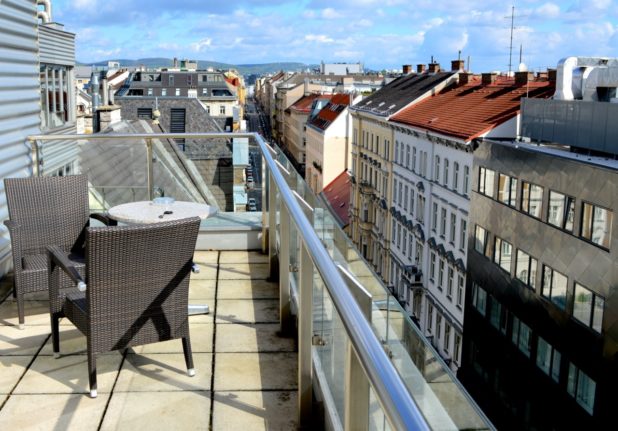The winter tyre season starts on November 1st in Austria, after which winter tyres are a legal requirement for all cars and trucks during wintry conditions (snow and ice) until April 15th.
The tyre requirement is tied to the weather conditions rather than the date range, so even after November, you can use normal tyres in mild conditions.
Mechanics and auto industry leaders are reporting an increase in the cost of tyres this year.
Mario Alfreider, from Alfreider Auto Repair in Oberndorf, Tyrol, told The Local: “Prices this year are around three percent higher than last year because there is high demand and less supply globally.”
He added that despite this, there were plenty of tyres available in the region, so there was no need for any fears of a shortage.
READ MORE: Key points: Austria announces new rules for winter tourism
Michael Peschek-Tomasi, Branch Spokesman for the Car Tyre Trade in Salzburg, told ORF that winter tyres are 10 to 12 percent more expensive this year due to the rising cost of raw materials.
Peschek-Tomasi also said there are “delivery bottlenecks” for tyres that contain more steel, known as C tyres, because the global cost of steel has increased, leading to less tyres being produced.
C tyres are used on light trucks and vans, which have been popular with buyers in Austria in the past year due to the upcoming NoVA (standard consumption tax) increase.
Commercial vehicles will be more expensive to buy in Austria from May 1st 2022 when NoVA will increase. The tax rise was initially planned to be introduced on July 1st 2021 but was postponed due to supply chain delays for new commercial vehicles.
What’s behind the price rise?
Many of the world’s largest tyre plants are based in Asia and production has been impacted by new disinfection processes at facilities and Covid-19 restrictions.
Throw in a shortage of steel due to higher prices and it has resulted in less tyres being produced globally.
Peschek-Tomasi, from the Car Tyre Trade in Salzburg, says delivery times for direct orders made to factories in Asia are currently around six weeks.
Reuters recently reported how a tyre shortage in the US is impacting farmers in Illinois during the harvest.



 Please whitelist us to continue reading.
Please whitelist us to continue reading.
Member comments